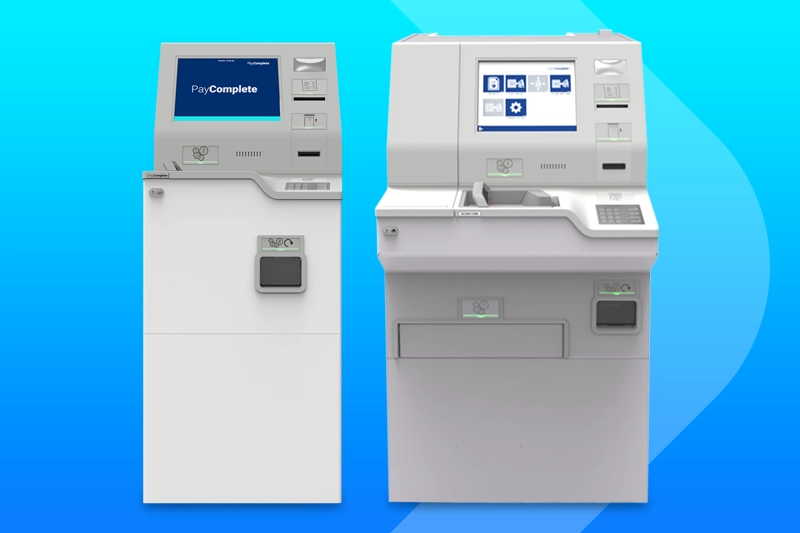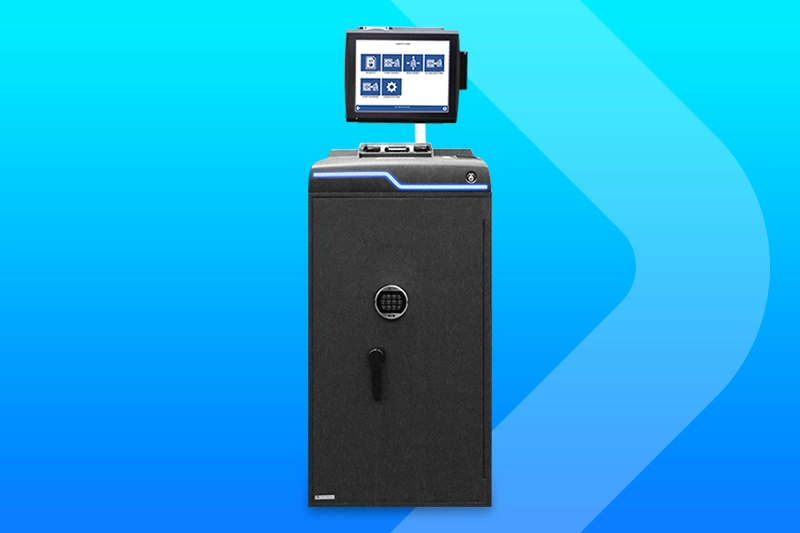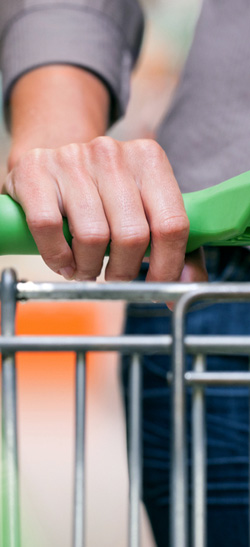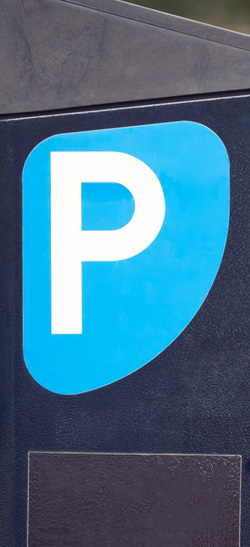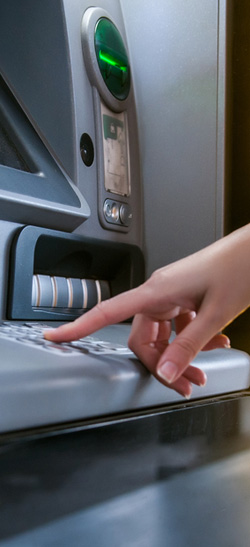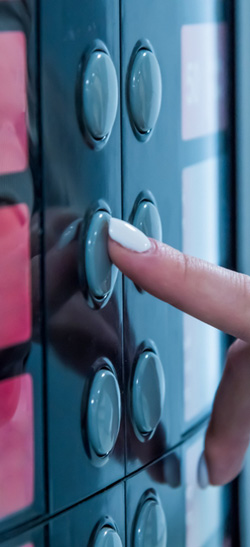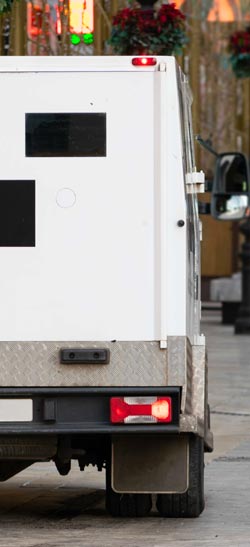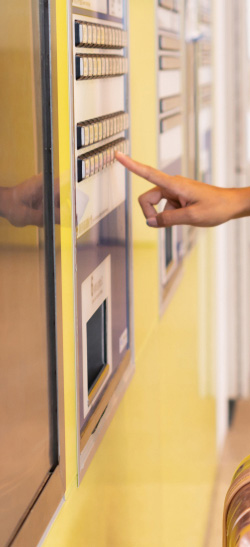“All safe deposit boxes in banks or financial institutions have been sealed… and may only be opened in the presence of an agent of the I.R.S.”
This quote by Frankelin D. Roosevelt highlights the trust businesses and consumers have placed in safety deposit boxes for decades.
Today, you probably won’t need an agent of the I.R.S or a court order to open your safety deposit box with you. But they remain a trusted means of securing valuable possessions, family keepsakes and other important documents.
Understanding how safe deposit boxes work, including their robust security features like time locks and dual key systems and the process for accessing them, can provide peace of mind when storing items of significant value or personal importance.
What is a Safety Deposit Box?
A safety deposit box (also known as a safe deposit box) is an individually secured container like a metal box with a locking mechanism. Safe deposit boxes are stored at a financial institution such as a federally insured bank (in the vault) or a credit union.
What Items are Commonly Stored in a Safe Deposit Box?
Typically, items that do not require immediate access are deposited.
Some examples are important legal documents (e.g. birth certificates, real estate, or living wills) family heirlooms, and other documents such as savings bonds and estate planning.
However, it’s crucial to caution against keeping estate planning documents, such as an original will, in a safe deposit box due to the potential difficulty in accessing them when needed for unexpected situations or during the probate process.
What About Cost?
Usually, safe deposit boxes are rented with an annual fee paid to a financial institution.
The cost depends on the size of the safety deposit box. For example, a small safe deposit box from Halifax equates to £200, as compared to a large safe deposit box which amounts to £475 per annum.
Their size tends to be relatively small and not suitable to store items that are large.
How are Safe Deposit Boxes Secured?
A bank safe deposit box uses a dual key system for secure storage. For example, the bank holds the power to open their vault for the renter with the key to open the safe deposit box.
Multiple people can be assigned to safe deposit boxes, known as co-renters. Typically, not all the co-renters have to be present, but authorised signatures are put on file.
What is the Difference Between a Safe and a Safety Deposit Box?
Both keep valuable items protected but they have key differences.
Safety deposit boxes are located within a secure location like a bank vault or credit union. Whereas a safe can be installed in various locations including homes, offices, hotels, and retail stores.
Safes come in a range of sizes to suit different needs. While some are small, similar to safe deposit boxes, others are substantially larger. In contrast, safe deposit box size is much smaller.
In terms of cost, safes have higher initial costs, but a safe deposit box cost is pay as you go (typically a yearly fee). Therefore, safe deposit boxes may become a greater expense if annual fees are paid on an ongoing basis.
Safes are less restrictive and easier to access quickly, by whoever has the key or combination. However, safe deposit boxes can only be accessed during operating hours of financial institutions and require an authorised signature.
Can You Store Cash in a Safe Deposit Box?
The short answer is yes. However, it is advised against for a few reasons.
- FDIC insurance in the U.S does not cover the contents within safe deposit boxes. This means you could lose the money – which is a greater risk if a large volume of cash is stored.
- You cannot earn interest from physical cash just sitting in safety deposit boxes. Instead, placing your money in a high-interest savings account could be a more advantageous option, as it allows customers cash to earn interest over time, making it a smarter choice for those looking to grow their savings.
- You could actually be losing money through the annual rental fees.
- If the cash is for an emergency and you require immediate access, a safe deposit box is not suitable because you can only access it during working bank hours.
Advantages of Safety Deposit Boxes
High Security & Protection
Safe deposit boxes are typically located within bank vaults. This means that the boxes have enhanced security by being in a secure place, that has advanced surveillance and alarm systems.
These advanced security features offer protection against theft, fire resistance, and the ability to withstand a natural disaster.
Important valuables are most definitely safer in this secure container inside a vault, rather than in your own home.
Provides Privacy & Confidentiality
Safe deposit boxes allow your personal possessions, particularly sensitive documents like business papers, to stay private.
Under certain circumstances, for example in an unstable household situation, a safe deposit box is a great choice that provides sanctuary for your valuables as only you can access them.
Banks are also expected to abide by confidentiality regulations.
Straightforward & Peace of Mind
Valuable items and sensitive documents are kept in a central location and can be accessed in reasonable time when needed.
This provides peace of mind knowing items are secure and can be accessed at an appropriate time.
Disadvantages of Safe Deposit Boxes
Banks Reduce Their Own Liability
Whilst banks are taking extreme precautions to ensure their vaults are highly secure, there is no guarantee against damage or theft. Deposited contents are not covered by FDIC insurance.
Separate cover can be acquired for safe deposit box insurance cover.
Additionally, if rental fees are not paid in a certain time period the contents becomes unclaimed property and renounced from protection.
They Can Be Restrictive
Safe deposit boxes are not ideal for all items. Items that should not be stored include:
- Items needed in emergencies e.g. passports, cash or medical directive.
- Uninsured items.
- The only copy of a document e.g. original living wills.
Never store the only copy of an important document in a safe deposit box. It is recommended to also have digital copies readily available.
A bank safe deposit box can only be accessed during operating hours and requires authorised signatories. These restraints negate immediate access.
Conclusion
Safety deposit boxes offer high security, privacy, and peace of mind for storing valuables, but they also come with limitations such as restricted access, fees, and lack of insurance for certain contents.
For businesses and individuals seeking more accessible and advanced cash and asset management solutions, PayComplete provides innovative safe services and CashTech solutions designed for security and convenience.
Explore how PayComplete can enhance your financial security and efficiency today.
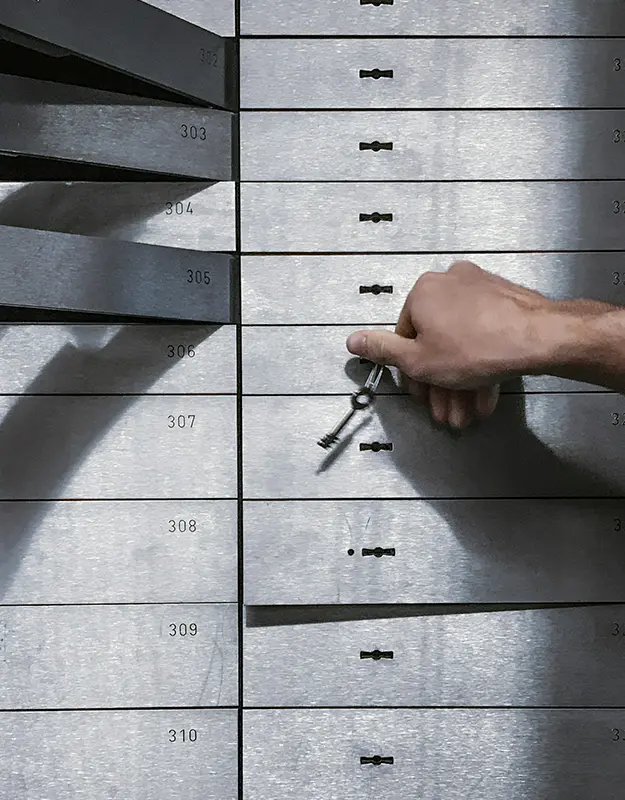
Related Posts


